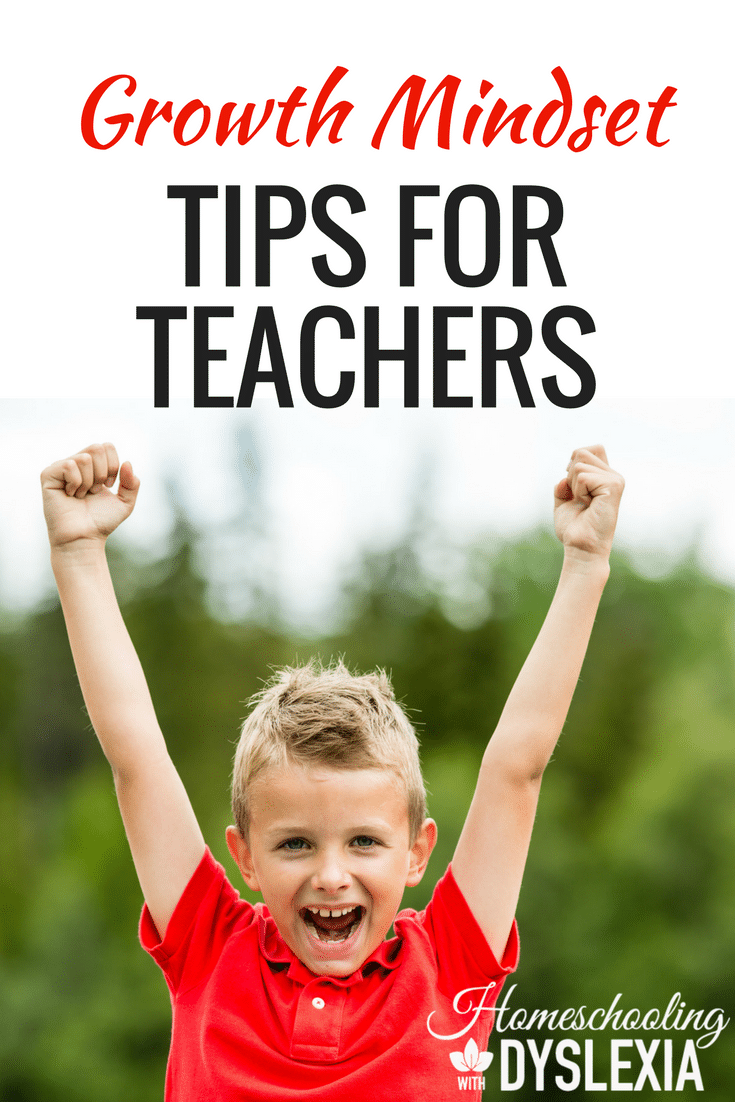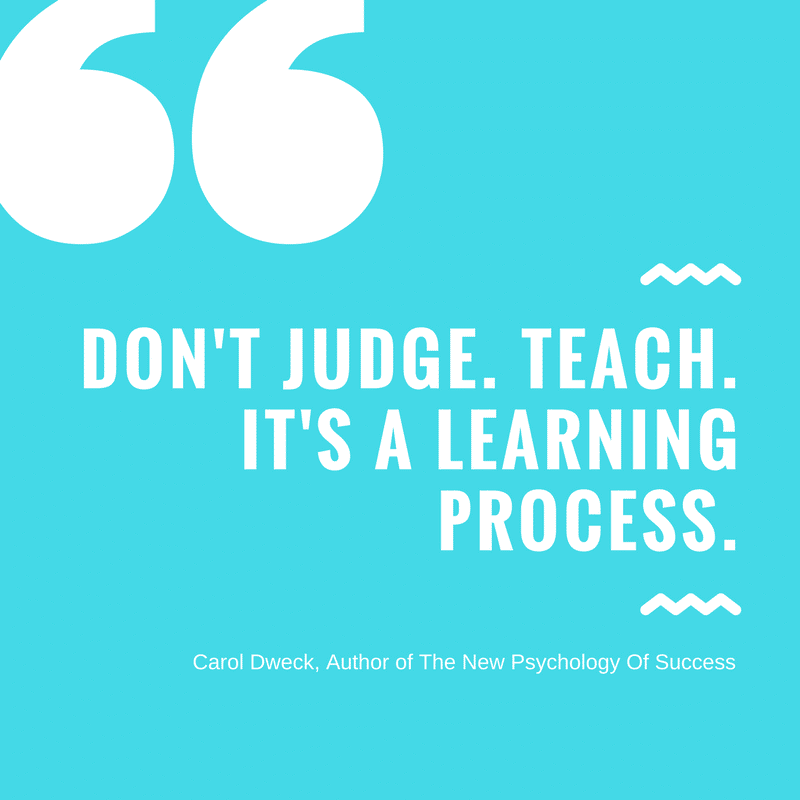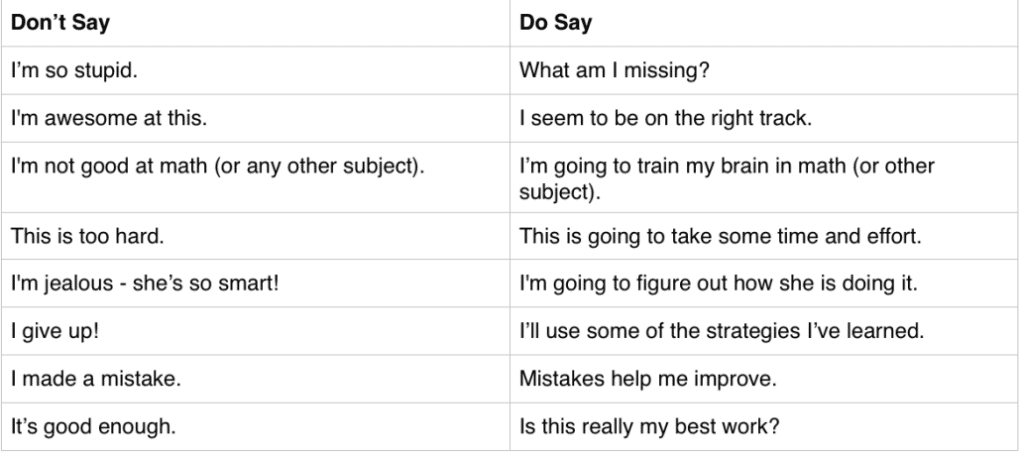Cultivating a growth mindset in my kids has had an amazing impact on our day-to-day interactions. Where I used to hear a lot of negative self-talk, I now hear my kids actually coaching themselves to use another strategy or telling me to wait while they ‘find the answer in their heads’. They are using their growth mindsets to overcome learning challenges in a positive way every day. Here are a few growth mindset tips that have helped me on my quest to foster a growth mindset in my kids.

We’ve talked before about what a growth mindset is and how to teach your kids to have a growth mindset. Those posts are a must read to understand the impact of a growth mindset on kids’ learning – especially for kids like mine who often struggle.
Tips for Teaching a Growth Mindset
Mindset researcher and author, Carol Dweck, sums up the growth mindset in this way:
“In the fixed mindset, everything is about the outcome. If you fail—or if you’re not the best—it’s all been wasted. The growth mindset allows people to value what they’re doing regardless of the outcome. They’re tackling problems, charting new courses, working on important issues. Maybe they haven’t found the cure for cancer, but the search was deeply meaningful.”
Believe in your kids’ potential
As parents, if we start with the belief in our kids’ potential and praise their efforts rather than their outcome (grades, scores, accuracy, etc) they begin to focus more on the process of learning than on achieving the desired outcome.
“Test scores and measures of achievement tell you where a student is, but they don’t tell you where a student could end up.” – Carol Dweck
“People may start with different temperaments and different aptitudes, but it is clear that experience, training, and personal effort take them the rest of the way.” – Carol Dweck
Kids with dyslexia don’t lack intelligence or the capacity to learn. We need to believe this and teach our kids to believe it too.
It’s not just ability, it’s character
Here’s another quote from Carol Dweck that drives home an important point:
“We like to think of our champions and idols as superheroes who were born different from us. We don’t like to think of them as relatively ordinary people who made themselves extraordinary.”
― Carol S. Dweck, Mindset: The New Psychology of Success
Did you catch that? While we are all born with unique gifts and talents. It is what we do with them that transforms us from ordinary to extraordinary.
And this from Sports Illustrated Sportsman of the Year, John Wooden:
“I believe ability can get you to the top, but it takes character to keep you there.… It’s so easy to … begin thinking you can just ‘turn it on’ automatically, without proper preparation. It takes real character to keep working as hard or even harder once you’re there. When you read about an athlete or team that wins over and over and over, remind yourself, ‘More than ability, they have character.’“
Change the way you look at learning
If parents want to give their children a gift, the best thing they can do is to teach them to love challenges, be intrigued by mistakes, enjoy effort, and keep on learning. That way, they won’t become slaves of praise.
“Mindset change is not about picking up a few pointers here and there. It’s about seeing things in a new way. When people…change to a growth mindset, they change from a judge-and-be-judged framework to a learn-and-help-learn framework. Their commitment is to growth, and growth takes plenty of time, effort, and mutual support.” – Carol Dweck

Everyone is born to learn
Everyone is born with an intense drive to learn. Infants improve their skills daily. Learning to walk and talk are some of the most difficult tasks to master. Have you ever seen an infant decide it’s too hard or not worth the effort? Of course not! Babies don’t worry about making mistakes or humiliating themselves. They walk, they fall, they get up. They just barge forward.
So what is it that puts an end to this eager, confident learning? The fixed mindset.
As soon as children become able to evaluate themselves, some of them become afraid of challenges. They become afraid of not being smart.
How to Change From a Fixed Mindset to a Growth Mindset
- Teach them about their brain. Download the article, You Can Grow Your Intelligence and read it out loud or have your older children read this by themselves and discuss the ideas about brain function. Lead them to understand that the brain is like a muscle that gets stronger with use and that learning prompts neurons in the brain to grow new connections.Teach your kids that they can improve their IQ and talents. Present the evidence and teach them that education is something that have control over.Just as a baby isn’t born talking but learns over time, they don’t know everything but can learn over time with work.
- Model a growth mindset. A lot of how our students (or kids) pick up on a growth mindset will be from observing and listening to you as their parent or teacher. Show kids how to recognize fixed mindset thoughts and how to replace them with growth mindset thoughts. Here are some language changes that you can teach:

- Praise the process. Parents and teachers tend to think that praising kids’ intelligence builds confidence and motivation to learn. While this type of praise may give your kids a brief boost in confidence, it leads to a fixed mindset – one that is more concerned with looking smart and keeping the parent or teacher’s admiration than on actually working hard to learn. Parents and teachers do better to focus on praising the ‘process’ or personal effort and any effective strategies used. This fosters motivation by placing value on what students have done and what they need to do to continue to be successful.
Growth Mindset Resources
Big Life Journal Known for their best-selling journals for kids and teens as well as beautifully illustrated worksheets and motivational printables.
Mindset by Carol Dweck. Read from the researcher herself about the strategies used to study the amazing impact of a growth mindset on students.
Can you begin to see the changes in our own mindsets that will help us to teach our kids to believe in their potential, be okay with making mistakes, and keep trying?
For more tips on teaching a growth mindset, read these posts:






0 Comments